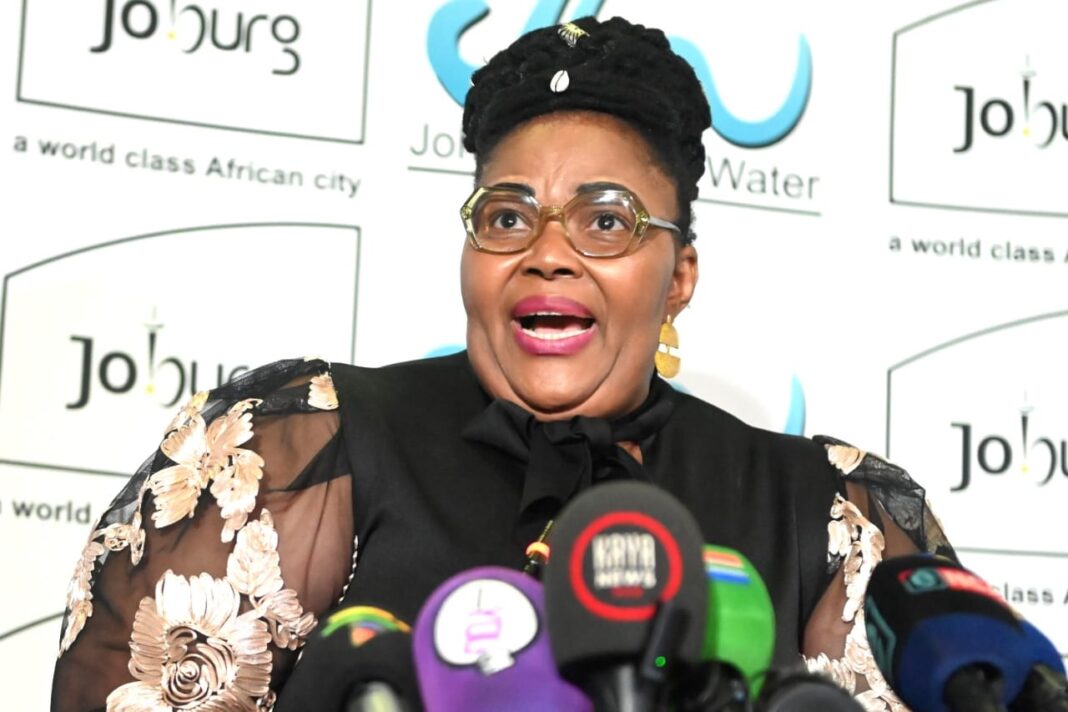By Thapelo Molefe
A high-level ministerial meeting has agreed that the City of Johannesburg must reduce the leaks in its water distribution system in order to avert a full-blown water crisis.
This follows an urgent meeting to address the challenges of water in the City of Johannesburg.
The meeting was convened by Water and Sanitation Minister Pemmy Majodina. It was attended by Gauteng premier Panyaza Lesufi, Gauteng cooperative governance MEC Jacob Mamabolo, Johannesburg mayor Dada Morero and the leadership of Rand Water.
The gathering pinpointed the primary drivers behind the supply disruptions and established a clear course of action to stabilise water distribution.
The meeting also urged City of Joburg to complete its current projects to construct more reservoirs and pumping stations to make its water distribution system more resilient to electro-mechanical breakdowns or spikes in demand.
Morero highlighted a major issue with water supply, noting that 45 reservoirs were in poor condition.
He further said that efforts were under way to repair 11 of the reservoirs.
“Reservoirs will then help us store sufficient water, and we’ll be able to mitigate all interruptions that might be there. We can continue to guarantee the water supply for our residents,” said Morero.
“Into the future, we’re require more innovation in dealing with our water challenges. We’ve made the decision to look into developing partnership programmes with major businesses to also come on board and assist us in our water saving campaigns.”
Johannesburg Water presented the measures which it was implementing, including the procurement of a panel of contractors for emergency repairs of large diameter pipe water leaks, as well as increasing the number of teams on standby to attend to leaks and burst pipes.
“Municipalities need to take accountability for not ensuring that their infrastructure is up to standard. We must work together to ensure a stable water supply for the residents of Johannesburg,” said Majodina.
“Yes, we are in a crisis. However, we are working together to implement a large-scale communications awareness campaign in Gauteng to encourage using water wisely and sparingly… Pay for your water. It is your obligation. Not paying your water bill impacts municipalities in the delivery of water to your homes.”
Majodina also noted that a public-private partnership with National Treasury was being explored to reduce non-revenue water, leveraging private sector funding and expertise to drive efficiency and sustainability in the city’s water management.
She said the demand for water in Johannesburg has grown and continues to grow as a result of economic growth and population growth.
“Gauteng’s water consumption exceeded international standards,” said Majodina.
The province used 278 litres per person daily, surpassing the recommended 173 litres, leading to the implementation of level-one water restrictions.
The 2023 No Drop report issued by Department of Water and Sanitation found that water losses in Johannesburg were 35%, compared to the international norm of 15%.
The meeting further noted and strongly supported the approval by the Johannesburg city council of a turnaround strategy for Joburg Water.
It includes creating single-point accountability for the water function in the city.
The intention is to give Joburg Water control over all the functions related to managing water supply, so that it can be held accountable.
Meanwhile, Johannesburg Water will start “throttling” water supply from Thursday between 9pm and 4am.
INSIDE POLITICS

